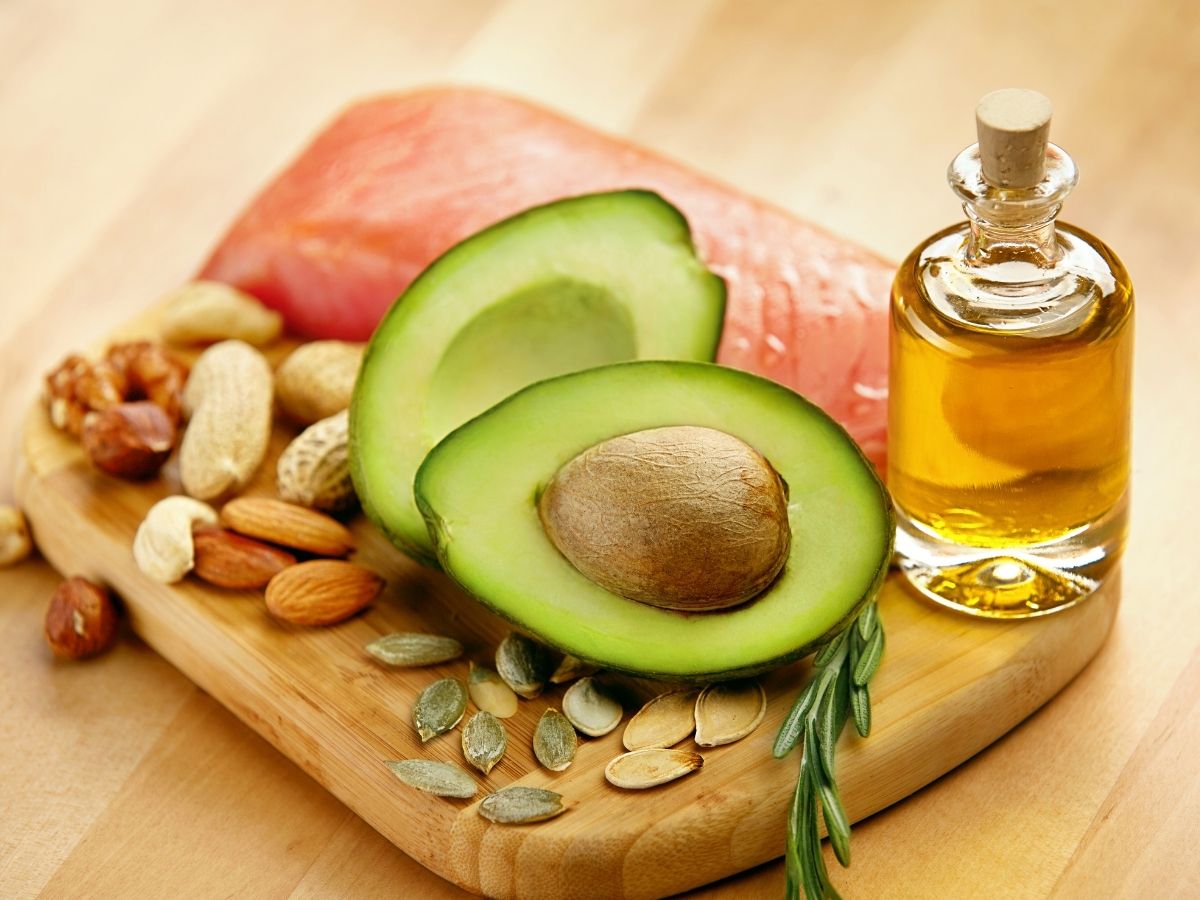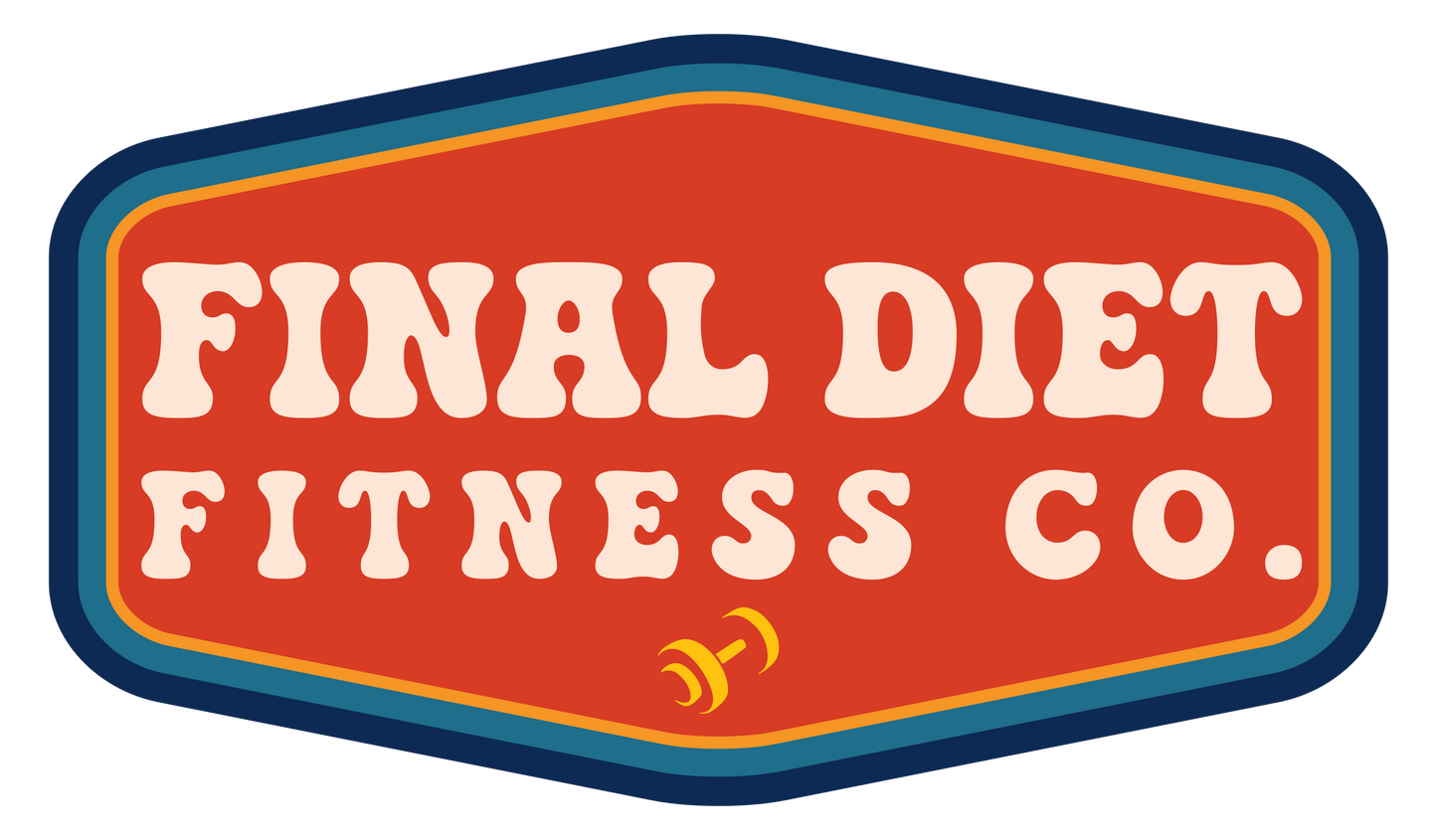
For years, fat was labeled the villain of nutrition—blamed for weight gain, high cholesterol, and poor heart health.
But we now know that fat is essential for energy, hormones, and overall function. The key isn’t avoiding fat—it’s choosing the right kinds in the right amounts.
When included strategically, healthy fats improve how you feel, perform, and even how your body looks.
1. What Fats Do in the Body
Fat plays a critical role in several key processes:
- Hormone production: Supports testosterone, estrogen, and other hormones that regulate energy, muscle growth, and metabolism.
- Nutrient absorption: Vitamins A, D, E, and K require fat to be absorbed properly.
- Brain and nervous system health: The brain is about 60% fat—so quality fats are vital for cognition and focus.
- Satiety: Fats digest slowly, helping you stay full longer and avoid energy crashes.
Instead of avoiding fat, the goal is to balance healthy fats with lean protein and quality carbs.
2. The Different Types of Fats
There are several kinds of dietary fats—some support health, while others should be minimized:
Unsaturated Fats (the “good” fats):
Found in olive oil, avocados, nuts, seeds, and fish.
- Support heart health
- Reduce inflammation
- Improve cholesterol balance
Saturated Fats (moderation fats):
Found in meat, dairy, butter, and coconut oil.
- Not inherently bad but should be consumed in moderation (less than 10% of total calories).
Trans Fats (avoid completely):
Found in many processed foods and fried items.
- Increase inflammation and raise disease risk.
Think of unsaturated fats as your daily drivers, saturated fats as occasional add-ons, and trans fats as off-limits.
3. Why Healthy Fats Matter for Hormones
Your hormones depend on dietary fat to function properly.
Extremely low-fat diets can disrupt hormonal balance, leading to fatigue, poor recovery, mood swings, and even reduced libido.
In both men and women, adequate fat intake supports healthy levels of sex hormones, thyroid function, and energy metabolism.
Bottom line: cutting fat too low can do more harm than good, especially if you train hard or diet for long periods.
4. Fats and Fat Loss
Despite the name, eating fat doesn’t make you fat.
Fat gain only occurs in a calorie surplus, not from the macronutrient itself.
Healthy fats can actually help with fat loss by:
- Increasing meal satisfaction
- Slowing digestion
- Improving adherence to your plan
However, fats are calorie-dense—at 9 calories per gram (more than double protein or carbs)—so portion awareness is key.
5. Top Sources of Healthy Fats
Include a variety of these in your weekly plan:
- Avocados – rich in heart-healthy monounsaturated fats
- Olive oil – excellent for cooking and dressings
- Nuts and seeds – almonds, walnuts, chia, flax, pumpkin
- Fatty fish – salmon, sardines, mackerel, trout
- Egg yolks – packed with nutrients and healthy fat
- Nut butters – watch portions, but great in moderation
You don’t need large amounts—small servings go a long way toward supporting health and performance.
6. How Much Fat Should You Eat?
A good general guideline:
- 25–35% of total calories from fat is appropriate for most people.
Example:
If you eat 2,000 calories per day, that’s roughly 55–75 grams of fat.
Balance the rest of your calories between protein and carbohydrates based on your goals.
Key Takeaways
- Fat is essential for hormone health, energy, and nutrient absorption.
- Focus on unsaturated fats (olive oil, nuts, avocados, fish) and limit processed fats.
- Moderate total fat intake—enough to support hormones, not excess calories.
- Healthy fats make meals satisfying, sustainable, and supportive of long-term results.
